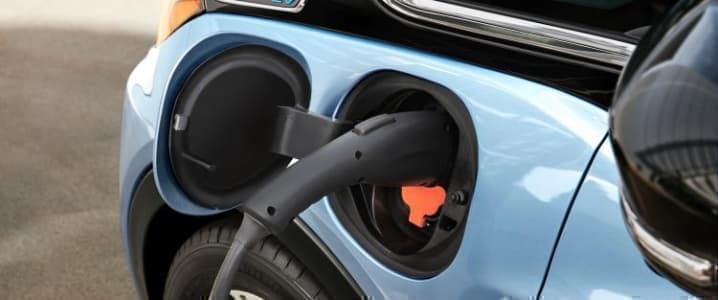European carmakers are facing what could turn out to be a major crisis cooked up by EU regulators, and it’s all about EVs and emissions. The former are supposed to help solve the problem with the latter, but the likelihood of success is uncertain because there are literally millions of variables: car buyers.
The EU has been enforcing emission caps on cars since 2012. Until this year, this cap has been an average of 130 grams of CO2 per kilometer for all new passenger cars. Beginning next year, however, this would be reduced further to 95 grams of CO per km. In fuel consumption, the 130 g/km cap corresponds to an average 5.6 liters of gasoline per 100 km while the 95 g/km cap corresponds to 4.1 liters per 100 km.
Europe’s big carmakers are lining up the EVs. Volkswagen alone is planning four new EV models for 2020, after earlier this month it unveiled its first mass production affordable EV, the ID3. More models should be coming from the top carmaker in the next few years and its rivals will not be sitting idly by. Everyone who makes cars in Europe has an electric lineup… but there are no guarantees that people will want to buy those cars.
“You have cars that cost an extra 10,000 euros to build, fleet-emissions targets requiring a certain sales volume and consumers who may or may not want them,” one executive from PSA Group (the company that makes Citroen and Peugeot) told Reuters at this week’s Frankfurt Motor Show.
It’s not like the industry hasn’t tried to make EVs attractive. It’s enough, at least in some parts of the EU, to say they are the greener alternative, and there will be people to buy them. Unfortunately, the majority seems to like big cars over green cars.
A report by Automotive News Europe revealed in March this year that while total car sales in 2018 had stayed flat on 2017, sales of SUVs and crossovers in the EU had posted a healthy growth of 18 percent. That’s 800,000 more SUVs and crossovers sold in the EU last year, with the total reaching 5.3 million. Related: The US Massively Underestimates The Trade War Blowback
Greenpeace had more bad news for Europe’s carmakers. In a report titled Crashing the Climate: How the Car Industry is Driving the Climate Crisis, the environmental organization said the total carbon emissions of what Greenpeace calls “the dirty dozen” carmakers had exceeded the EU’s carbon emissions in 2018. Fun fact: Volkswagen was the worst offender, probably because it sells the most cars.
Greenpeace went on to add that sales of SUVs in Europe had risen more than four times since 2008, with their market share reaching 32 percent, from just 8 percent in 2008. Sure enough, in recent years, some of these SUVs are hybrid, but the great majority are not.
According to a German engineering consultancy cited by Reuters, based on the EU’s emission targets, sales of EVs would need to increase three times to reach a 6-percent market share by 2021, in order to make a difference. Hybrid vehicle sales, FEV Consulting says, would need to accumulate a 5-percent market share.
That’s quite a rise in EV sales in countries that are not as small and green as Norway. Given the buying trends from recent years, carmakers have every reason to worry about their EV plans not working out. Unfortunately, there is little they can do to tame the wild cards that are SUV-loving customers.
By Irina Slav for Oilprice.com
More Top Reads From Oilprice.com:
- Weakening Shale Productivity “VERY Bullish” For Oil Prices
- Iran Has Perfected The Art Of Hiding Its Oil Tankers
- Oil Flashcrashes After Trump Fires Security Advisor Bolton


















